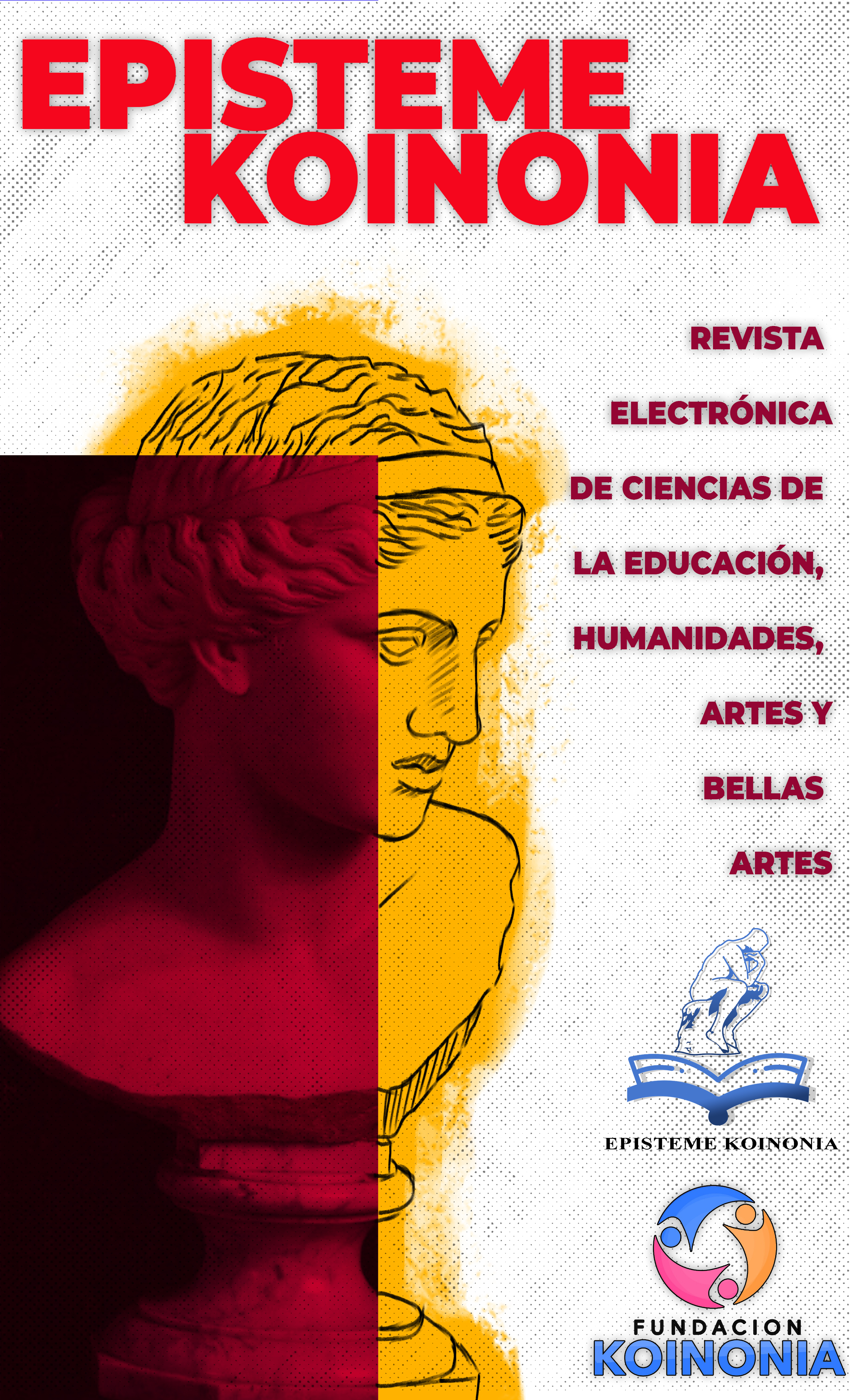Gamification programs in education. A systematic review
DOI:
https://doi.org/10.35381/e.k.v8i16.4567Keywords:
Program, gamification, education, (UNESCO Thesaurus).Abstract
The general objective of this study was to analyze gamification programs in the educational area. For this purpose, a qualitative approach was used, implementing a bibliographic review in the Scopus, SciELO and Redalyc direct access databases between the years 2021 to 2025, in order to understand the perspective of different authors in different contexts on gamification programs in education. The methodology was based on the PRISMA method. Among the results, it was highlighted that gamification has been as an innovative educational alternative that promotes the dynamics of games, in order to increase motivation, commitment and academic performance of students. Therefore, it was concluded that gamification programs have strengthened thinking and self-regulation skills, as well as behavior, academic performance, and social skills.
Downloads
References
Ábalos, F., Romero, L. & Bernal, C. (2024). TIC, motivación y rendimiento académico en educación primaria: meta-análisis, revisión de literatura y estado de la cuestión. Education in the Knowledge Society (EKS), 25, e31799, pp. 1-25. Disponible en: https://n9.cl/xjpwm3
Alonso, S., Martínez, J., Berral, B. & De la Cruz, J. (2021). Gamificación en Educación Superior. Revisión de experiencias realizadas en España en los últimos años. Revista científica De Educación Y Comunicación, núm. 23, pp. 1-21, Disponible en: https://n9.cl/asf7t3
Bastidas, L., Romero, D., Lomelí, S. & Yánez, V. (2025). Utilización de la gamificación para fomentar el aprendizaje de habilidades de investigación en estudiantes universitarios: una revisión sistemática. Revista InveCom, vol. 5, num. 1, pp. 1-8. Disponible en: https://n9.cl/q75os
González, H., Delgado-Rico, H., Castillo, W. & Olarte, C. (2023). Implementación y evaluación de un espacio digital de aprendizaje de la fisiología mediante vídeos instruccionales cortos y gamificación. FEM: Revista de la Fundación Educación Médica, 26(3), pp. 121-127. Disponible en: https://n9.cl/yeuha
Guevara, G., Madariaga, L., Reyes, C. & Zuleta, C. (2023). Gamificación para el desarrollo del aprendizaje de las operaciones matemáticas en tercero básico. Información tecnológica, 34(4), pp. 31-44. Disponible en: https://n9.cl/h4l0r
Isea, J., Gómez, I., Comas, R. (2023). Interaction between university extension and curricular innovation: a collaborative and co-creative perspective in higher education. Revista Conrado, volumen 19 (3), pp. 469-481. Disponible en: https://n9.cl/bnb225
Jaramillo, L., Basantes, A., Casillas, S., & Cabezas, M. (2025). Gamificación en la enseñanza universitaria: retos didácticos y tecnológicos. Edutec, Revista Electrónica De Tecnología Educativa, (91), pp. 167–184. Disponible en: https://n9.cl/d0vb0
Laca, L., Díaz García, M. & Piscoche Botello, C. (2024). Gamificación como estrategia para mejorar la motivación en estudiantes universitarios: Revisión sistemática. Horizontes, 8(35), pp. 2596–2609. Disponible en: https://n9.cl/slhby
Lampropoulos, G., & Kinshuk. (2024). Virtual reality and gamification in education: a systematic review. Educational technology research and development, 72(3), pp. 1691-1785. Disponible en: https://n9.cl/feve3
Martín, L., Palacios, A. & Gallego, Ó. (2022). ¿Jugamos o gamificamos? Evaluación de una experiencia formativa sobre gamificación para la mejora de las competencias digitales del profesorado universitario. Alteridad. Revista de educación, vol. 17 Núm. 1, pp. 36-49. Disponible en: https://n9.cl/qyppu
Mendoza, F. (2025). Competencias investigativas para el diseño de un currículum nuclear: revisión sistemática. Revista Científica UISRAEL, 12(1), pp. 123-145. Disponible en: https://n9.cl/7s4ig
Molina, T., Lizcano, C., Burbano, L. & Isea, J. (2025). Discurso metacomunicativo como herramienta para el aprendizaje en el aula. Revista Conrado, 21(103), e4353, pp. 1-7. Disponible en: https://n9.cl/f0qle
Morocho, B., Romero, A. & Beltrán, E. (2023). Gestión de los procesos universitarios. Ingenium Et Potentia, 5(1), pp. 1023–1034. Disponible en: https://n9.cl/1jzih
Mustafa, F. Mai Nguyen, H. & Gao, X. (2024). The challenges and solutions of technology integration in rural schools: A systematic literature review. International Journal of Educational Research, volume 126, 102380, pp. 1-14. Disponible en: https://n9.cl/2gt3qt
Oliveira, W., Hamari, J., Shi, L., Toda, A. M., Rodrigues, L., Palomino, P., & Isotani, S. (2023). Tailored gamification in education: A literature review and future agenda. Education and Information Technologies, 28(1), pp. 373-406. Disponible en: https://n9.cl/r9uvz
Pérez, M. (2021). ¿Qué nos importa Skinner, treinta años después? Papeles del Psicólogo, 42(1), pp. 10-20. Disponible en: https://n9.cl/adu3b
Sarabia, D. A., y Bowen, L. (2023). Uso de la gamificación en el proceso de enseñanza aprendizaje en carreras de ingeniería: revisión sistemática. Episteme Koinonía. Revista Electrónica de Ciencias de la Educación, Humanidades, Artes y Bellas Artes, 6(12), pp. 20-60. Disponible en: https://n9.cl/auoq6
Simbaña, E., Sarabia, D., García, F. & Pico, J. (2023). Gamification for improving oral communication skills in English as a Foreign Language learners. CIENCIAMATRIA, 9(2), pp. 359-379. Disponible en: https://n9.cl/4y171
Zeybek, N., & Saygı, E. (2024). Gamification in education: Why, where, when, and how? —A systematic review. Games and Culture, 19(2), pp. 237-264. Disponible en: https://n9.cl/ezuz2
Published
How to Cite
Issue
Section
License
Copyright (c) 2025 Aracely Jacqueline Mendoza-Vega

This work is licensed under a Creative Commons Attribution-NonCommercial-ShareAlike 4.0 International License.
CC BY-NC-SA : Esta licencia permite a los reutilizadores distribuir, remezclar, adaptar y construir sobre el material en cualquier medio o formato solo con fines no comerciales, y solo siempre y cuando se dé la atribución al creador. Si remezcla, adapta o construye sobre el material, debe licenciar el material modificado bajo términos idénticos.
OAI-PMH URL: https://fundacionkoinonia.com.ve/ojs/index.php/epistemekoinonia/oai







